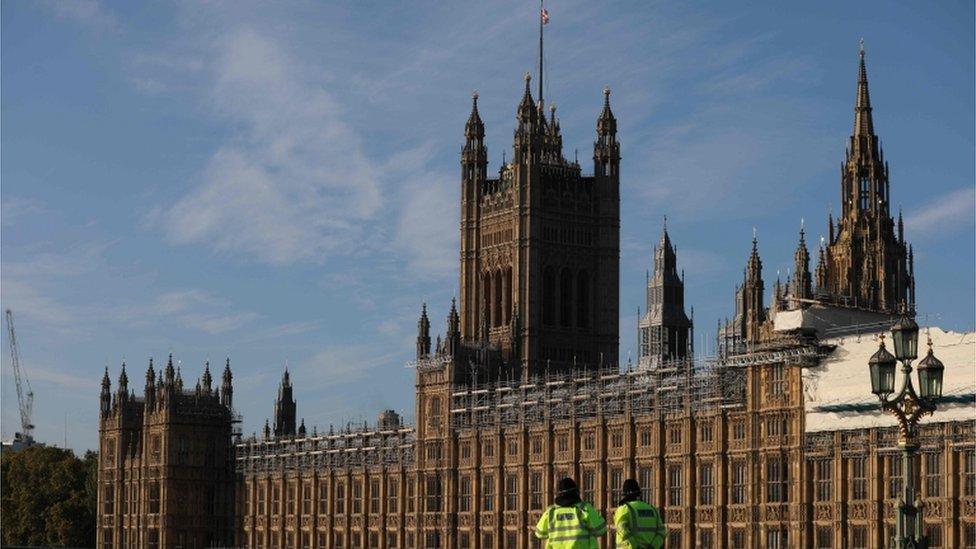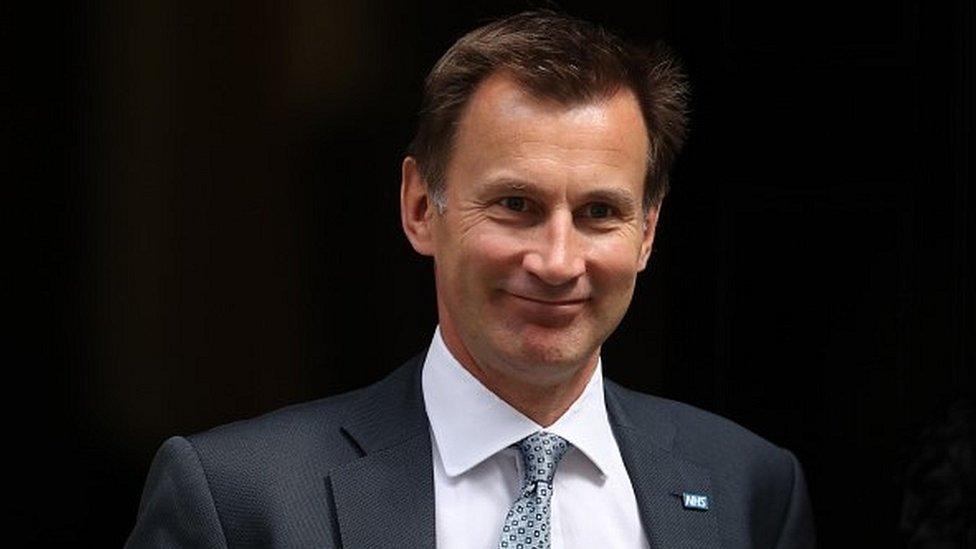How much will government have to fear from new committees?
- Published

Here they come! The new titans of the committee corridor have been elected by MPs - sometimes unopposed and sometimes after intensive intra-party dogfights.
The last few days in the Commons have seen stratospheric levels of leafleting, with flyers for rival candidates littering the coffee tables of Portcullis House, the parliamentary office block, and even examples of flyposting in the lifts.
And that's not to mention the bombardment of emails and the intensive personal campaigning - new intake MPs never realised how much genuine admiration they commanded from the rival candidates.
Next week will see each party group in the Commons electing members to each of the select committees - after which they will be ready to spring into action, scrutinising the work of the government.
This matters, because with the main opposition party, Labour, embroiled in a leadership contest, the committee corridor will be the main source of vital scrutiny and criticism of government policy.
But how far will they scrutinise and criticise?
The first question the new collection (suite?) of Conservative committee chairs have to ask themselves, in the privacy of their own mind, is "do I still have ambitions to be a minister?"
This is a critical question, because a committee chair who still hopes to pass through the pearly gates into ministerial office is likely to pull their punches when hard questions need to be asked or hard verdicts delivered.
Treasury Committee Chair Mel Stride was elected unopposed, and he is now in quite a hot seat, required to give a verdict on government economic policy as it unfolds.
If he starts making what ministers regard as unhelpful comments on issues like the level of government borrowing, or big decisions on industrial policy and trade policy, any ministerial hopes he may harbour will fade.
Ditto for Jeremy Hunt in Health, Tom Tugendhat in Foreign Affairs, Tobias Ellwood in Defence, Huw Merriman in Transport, and the rest.
For the Labour and SNP committee chairs, there is a mirror-image dilemma, although a less acute one; do they behave as party battlers, or do they work on a cross-party basis, perhaps at the cost of alienating members of their own particular tribe?
This is probably easier for a smart politician to finesse, on most occasions, but it is still a lurking problem - especially when a couple of the newly re-elected chairs - Rachel Reeves, Yvette Cooper, and Hilary Benn, for example - might be summoned to shadow cabinet office by an incoming Labour leader, prompting some rapid by-elections.
'Hard fought contests'
The elections for chairs saw some hard fought contests, with five Conservatives vying for the Defence Committee, after Julian Lewis, chair before the election, stood down.
And there were three challengers for the chair of Foreign Affairs, against the previous chair, Tom Tugendhat - although he emerged victorious.
On the Labour side ex-Treasury Minister Stephen Timms outpolled three strong rivals, to win the chair of Work and Pensions, vacated by select committee legend Frank Field.
And perhaps the only real upset in the race was the defeat of Damian Collins, the Conservative who chaired the Digital, Culture, Media and Sport Committee in the last Parliament, and attempted to continue in this one.
This victor, Julian Knight, took a not very coded swipe at his investigations into "fake news" and allegations around misuse of personal date in the EU referendum, by promising to "work on issues that matter out in the country, rather than what gets good write-ups in Westminster and the Media Guardian…"
Ouch. Mr Knight promises quarterly hearings on progress in delivering broadband across the country, and wants the committee to serve as an "unofficial Royal Commission" on the future of the BBC - of which he declares himself to be a critical friend.
'High-flyers'
Next week will see another spasm of internal campaigning as MPs seek places on individual committees, through elections within their party groups.
Parliament watchers should keep an eye on the new-intake MPs who win places on the powerful financial watchdog, the Public Accounts Committee, chaired by the former Labour minister, Meg Hillier.
Traditionally this is a place where promising high-flyers have made their bones, dealing with case studies of government failure.
Alumni have included Health Secretary Matt Hancock, former Business Secretary Greg Clark (now elected to the chair of the Science and Technology Committee) and former Chancellor George Osborne, and on the Labour side future ministers and shadow ministers like Maria Eagle, Chris Leslie and Barry Gardiner.
Defenders, lone wolves and absentees
The Edinburgh University Academic, Dr Marc Geddes, has been allowed to watch select committees, including their private session and he has published a fascinating account of their activities - breaking down the committee members into categories.
The categories include "party defenders" who always push the line most helpful to their tribe; "lone wolves" who have a particular issue they always push in every inquiry whatever the headline subject (the late Paul Flynn on drugs policy was one example he gave); constituency MPs who saw everything through the prism of the local interest, and absentees - the ones who never turned up.
The most valuable figures, though, are the specialists - the ones who really get under the skin of a policy area, and who may end up understanding it better than the sometimes here-today, gone-tomorrow ministers who come before them.
- Published29 January 2020

- Published29 January 2020
